John Ruskin - Lectures on Art, Delivered Before the University of Oxford in Hilary Term, 1870
Здесь есть возможность читать онлайн «John Ruskin - Lectures on Art, Delivered Before the University of Oxford in Hilary Term, 1870» — ознакомительный отрывок электронной книги совершенно бесплатно, а после прочтения отрывка купить полную версию. В некоторых случаях можно слушать аудио, скачать через торрент в формате fb2 и присутствует краткое содержание. Жанр: foreign_antique, foreign_home, literature_19, visual_arts, на английском языке. Описание произведения, (предисловие) а так же отзывы посетителей доступны на портале библиотеки ЛибКат.
- Название:Lectures on Art, Delivered Before the University of Oxford in Hilary Term, 1870
- Автор:
- Жанр:
- Год:неизвестен
- ISBN:нет данных
- Рейтинг книги:4 / 5. Голосов: 1
-
Избранное:Добавить в избранное
- Отзывы:
-
Ваша оценка:
- 80
- 1
- 2
- 3
- 4
- 5
Lectures on Art, Delivered Before the University of Oxford in Hilary Term, 1870: краткое содержание, описание и аннотация
Предлагаем к чтению аннотацию, описание, краткое содержание или предисловие (зависит от того, что написал сам автор книги «Lectures on Art, Delivered Before the University of Oxford in Hilary Term, 1870»). Если вы не нашли необходимую информацию о книге — напишите в комментариях, мы постараемся отыскать её.
Lectures on Art, Delivered Before the University of Oxford in Hilary Term, 1870 — читать онлайн ознакомительный отрывок
Ниже представлен текст книги, разбитый по страницам. Система сохранения места последней прочитанной страницы, позволяет с удобством читать онлайн бесплатно книгу «Lectures on Art, Delivered Before the University of Oxford in Hilary Term, 1870», без необходимости каждый раз заново искать на чём Вы остановились. Поставьте закладку, и сможете в любой момент перейти на страницу, на которой закончили чтение.
Интервал:
Закладка:
28. This, I repeat, gentlemen, will soon become manifest to those among us, and there are yet many, who are honest-hearted. And the future fate of England depends upon the position they then take, and on their courage in maintaining it.
There is a destiny now possible to us—the highest ever set before a nation to be accepted or refused. We are still undegenerate in race; a race mingled of the best northern blood. We are not yet dissolute in temper, but still have the firmness to govern, and the grace to obey. We have been taught a religion of pure mercy, which we must either now betray, or learn to defend by fulfilling. And we are rich in an inheritance of honour, bequeathed to us through a thousand years of noble history, which it should be our daily thirst to increase with splendid avarice, so that Englishmen, if it be a sin to covet honour, should be the most offending souls alive. Within the last few years we have had the laws of natural science opened to us with a rapidity which has been blinding by its brightness; and means of transit and communication given to us, which have made but one kingdom of the habitable globe. One kingdom;—but who is to be its king? Is there to be no king in it, think you, and every man to do that which is right in his own eyes? Or only kings of terror, and the obscene empires of Mammon and Belial? Or will you, youths of England, make your country again a royal throne of kings; a sceptred isle, for all the world a source of light, a centre of peace; mistress of Learning and of the Arts;—faithful guardian of great memories in the midst of irreverent and ephemeral visions;—faithful servant of time-tried principles, under temptation from fond experiments and licentious desires; and amidst the cruel and clamorous jealousies of the nations, worshipped in her strange valour of goodwill towards men?
29. "Vexilla regis prodeunt." Yes, but of which king? There are the two oriflammes; which shall we plant on the farthest islands,—the one that floats in heavenly fire, or that hangs heavy with foul tissue of terrestrial gold? There is indeed a course of beneficent glory open to us, such as never was yet offered to any poor group of mortal souls. But it must be—it is with us, now, "Reign or Die." And if it shall be said of this country, "Fece per viltate, il gran rifiuto;" that refusal of the crown will be, of all yet recorded in history, the shamefullest and most untimely.
And this is what she must either do, or perish: she must found colonies as fast and as far as she is able, formed of her most energetic and worthiest men;—seizing every piece of fruitful waste ground she can set her foot on, and there teaching these her colonists that their chief virtue is to be fidelity to their country, and that their first aim is to be to advance the power of England by land and sea: and that, though they live on a distant plot of ground, they are no more to consider themselves therefore disfranchised from their native land, than the sailors of her fleets do, because they float on distant waves. So that literally, these colonies must be fastened fleets; and every man of them must be under authority of captains and officers, whose better command is to be over fields and streets instead of ships of the line; and England, in these her motionless navies (or, in the true and mightiest sense, motionless churches , ruled by pilots on the Galilean lake of all the world), is to "expect every man to do his duty;" recognising that duty is indeed possible no less in peace than war; and that if we can get men, for little pay, to cast themselves against cannon-mouths for love of England, we may find men also who will plough and sow for her, who will behave kindly and righteously for her, who will bring up their children to love her, and who will gladden themselves in the brightness of her glory, more than in all the light of tropic skies.
But that they may be able to do this, she must make her own majesty stainless; she must give them thoughts of their home of which they can be proud. The England who is to be mistress of half the earth, cannot remain herself a heap of cinders, trampled by contending and miserable crowds; she must yet again become the England she was once, and in all beautiful ways,—more: so happy, so secluded, and so pure, that in her sky—polluted by no unholy clouds—she may be able to spell rightly of every star that heaven doth show; and in her fields, ordered and wide and fair, of every herb that sips the dew; and under the green avenues of her enchanted garden, a sacred Circe, true Daughter of the Sun, she must guide the human arts, and gather the divine knowledge, of distant nations, transformed from savageness to manhood, and redeemed from despairing into peace.
30. You think that an impossible ideal. Be it so; refuse to accept it if you will; but see that you form your own in its stead. All that I ask of you is to have a fixed purpose of some kind for your country and yourselves; no matter how restricted, so that it be fixed and unselfish. I know what stout hearts are in you, to answer acknowledged need: but it is the fatallest form of error in English youths to hide their hardihood till it fades for lack of sunshine, and to act in disdain of purpose, till all purpose is vain. It is not by deliberate, but by careless selfishness; not by compromise with evil, but by dull following of good, that the weight of national evil increases upon us daily. Break through at least this pretence of existence; determine what you will be, and what you would win. You will not decide wrongly if you will resolve to decide at all. Were even the choice between lawless pleasure and loyal suffering, you would not, I believe, choose basely. But your trial is not so sharp. It is between drifting in confused wreck among the castaways of Fortune, who condemns to assured ruin those who know not either how to resist her, or obey; between this, I say, and the taking of your appointed part in the heroism of Rest; the resolving to share in the victory which is to the weak rather than the strong; and the binding yourselves by that law, which, thought on through lingering night and labouring day, makes a man's life to be as a tree planted by the water-side, that bringeth forth his fruit in his season;—
"ET FOLIUM EJUS NON DEFLUET,
ET OMNIA, QUÆCUNQUE FACIET, PROSPERABUNTUR."
LECTURE II
THE RELATION OF ART TO RELIGION
31. It was stated, and I trust partly with your acceptance, in my opening lecture, that the study on which we are about to enter cannot be rightly undertaken except in furtherance of the grave purposes of life with respect to which the rest of the scheme of your education here is designed. But you can scarcely have at once felt all that I intended in saying so;—you cannot but be still partly under the impression that the so-called fine arts are merely modes of graceful recreation, and a new resource for your times of rest. Let me ask you, forthwith, so far as you can trust me, to change your thoughts in this matter. All the great arts have for their object either the support or exaltation of human life,—usually both; and their dignity, and ultimately their very existence, depend on their being "μετὰ λόγου ἀληθοῦς," hat is to say, apprehending, with right reason, the nature of the materials they work with, of the things they relate or represent, and of the faculties to which they are addressed. And farther, they form one united system from which it is impossible to remove any part without harm to the rest. They are founded first in mastery, by strength of arm , of the earth and sea, in agriculture and seamanship; then their inventive power begins, with the clay in the hand of the potter, whose art is the humblest but truest type of the forming of the human body and spirit; and in the carpenter's work, which probably was the early employment of the Founder of our religion. And until men have perfectly learned the laws of art in clay and wood, they can consummately know no others. Nor is it without the strange significance which you will find in what at first seems chance, in all noble histories, as soon as you can read them rightly,—that the statue of Athena Polias was of olive-wood, and that the Greek temple and Gothic spire are both merely the permanent representations of useful wooden structures. On these two first arts follow building in stone,—sculpture,—metal work,—and painting; every art being properly called "fine" which demands the exercise of the full faculties of heart and intellect. For though the fine arts are not necessarily imitative or representative, for their essence is in being περὶ περὶ γένεσιν —occupied in the actual production of beautiful form or colour,—still, the highest of them are appointed also to relate to us the utmost ascertainable truth respecting visible things and moral feelings: and this pursuit of fact is the vital element of the art power;—that in which alone it can develop itself to its utmost. And I will anticipate by an assertion which you will at present think too bold, but which I am willing that you should think so, in order that you may well remember it,—the highest thing that art can do is to set before you the true image of the presence of a noble human being. it has never done more than this, and it ought not to do less.
Читать дальшеИнтервал:
Закладка:
Похожие книги на «Lectures on Art, Delivered Before the University of Oxford in Hilary Term, 1870»
Представляем Вашему вниманию похожие книги на «Lectures on Art, Delivered Before the University of Oxford in Hilary Term, 1870» списком для выбора. Мы отобрали схожую по названию и смыслу литературу в надежде предоставить читателям больше вариантов отыскать новые, интересные, ещё непрочитанные произведения.
Обсуждение, отзывы о книге «Lectures on Art, Delivered Before the University of Oxford in Hilary Term, 1870» и просто собственные мнения читателей. Оставьте ваши комментарии, напишите, что Вы думаете о произведении, его смысле или главных героях. Укажите что конкретно понравилось, а что нет, и почему Вы так считаете.
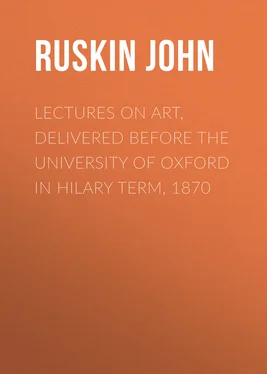



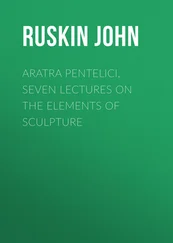
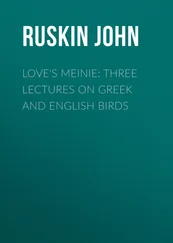

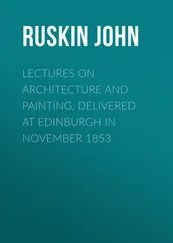

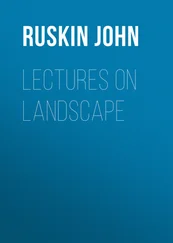


![John Bruce - The Lettsomian Lectures on Diseases and Disorders of the Heart and Arteries in Middle and Advanced Life [1900-1901]](/books/749387/john-bruce-the-lettsomian-lectures-on-diseases-and-disorders-of-the-heart-and-arteries-in-middle-and-advanced-life-1900-1901-thumb.webp)